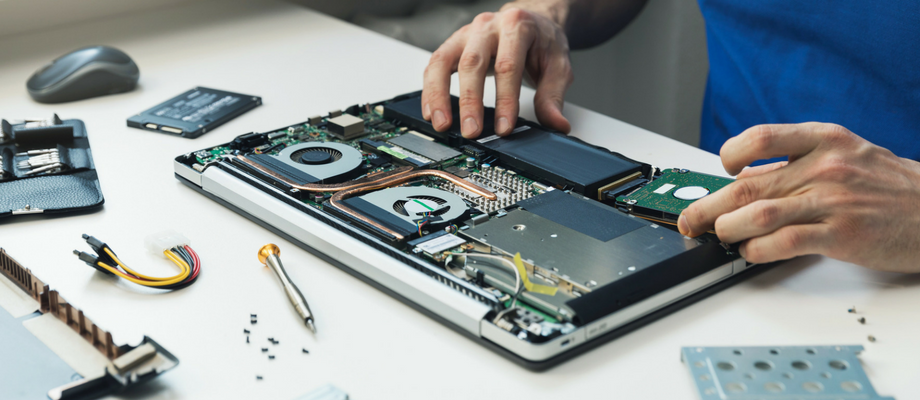
If you own a device, you should be able to repair it. That logic may sound simple—fundamental, even, to the concept of ownership. But device manufacturers have made it increasingly difficult for consumers to get their products working again when something goes wrong. Proprietary screws, finicky plastic tabs, “Warranty Void if Removed” stickers and copious amounts of glue all stand in the way of getting devices working again.
Consumers have always fought against these practices, and their ranks are getting more vocal as devices become more complex and “authorized” repair options narrow. And the trend is spreading beyond consumer devices. One interesting example of this is what happens when proprietary software meets the ingenuity and resourcefulness of American farmers.
It turns out that buyers of John Deere equipment are forced to sign licensing agreements that forbid them from using third parties to repair their machine’s embedded software. That may sound fine in practice, but the reality is that it often forces farmers to wait for, and then pay exorbitant fees to, a John Deere specialist to fix their tractors during the height of farming season.
As a result, some farmers have turned to black market software to hack tractors that would otherwise be impossible to repair. “John Deere makes farmers sign licensing agreements that limit the amount of tinkering they are supposed to do one their equipment,” writes Motherboard, and “violating it could be considered breach of contract and farmers who do are liable to be sued.”
Propelled by these concerns, “right to repair” laws are gaining steam in state legislatures. They face fierce opposition from corporations keen to protect their intellectual property and licensing agreements with third-party repair services.
Fixing Your Device without Going to Jail
Consumers have had to grapple with this for years. Not everyone has the knowledge or will to repair their own device, but at least it used to be easier when most devices were built with modular parts. The original 1985 Nintendo Entertainment System, for example, could be easily taken apart with nothing more than a standard Phillips’ head screwdriver. But by 1990, Nintendo had moved to a proprietary security screw to keep the console tightly guarded against tinkerers.
Fast-forward to now, and device teardowns for the purposes of repair have become incredibly difficult. Microsoft’s Surface Laptop, for example, is so filled with glue that it “literally can’t be opened without destroying it,” according to repair advocacy company iFixit. The device earned the site’s first ever “zero repairability score.”
An E-Waste Crisis
This is not simply a consumer rights issue – it’s also an environmental one. Every device that gets repaired or refurbished is one less device in a landfill and an iota less of rare earth minerals to be mined. According to the U.S. Public Information Resource Group (PIRG), there were 44.7 million metric tons of e-waste generated across the globe in 2016 alone. Only an estimated 15 – 20 percent of that was recycled. Their research projects that e-waste will continue to grow at a rate of 8 percent a year.
Discarded devices can leak deadly rare earth metals into the environment and water tables. They also force demand for new devices, which consume resources during manufacturing and inevitably end up as e-waste of their own.
As you might imagine, big tech companies aren’t on board with these efforts, and they’re fighting back in the courts. This spring Eric Lundgren, an avid device recycler, received 15 months in prison for securing Windows restore discs for the purposes of refurbishing laptops that were otherwise destined for the landfill.
Manufacturers certainly have business interests to protect, but at the end of the day, consumers (and farmers) should be able to repair their own devices rather than add to a landfill. In the words of a Nebraska farmer interviewed in the article: “What happens in 20 years when there’s a new tractor out and John Deere doesn’t want to fix these anymore? Are we supposed to throw the tractor in the garbage, or what?”
We’ve seen how recently Microsoft has moved to embrace an open-source paradigm for software. Perhaps it’s time companies like John Deere evolved as well. And of course, if it’s within your consumer rights to have your three-year-old fill your new gaming console’s disc tray with peanut butter, it should also be within your rights to repair said damage.

